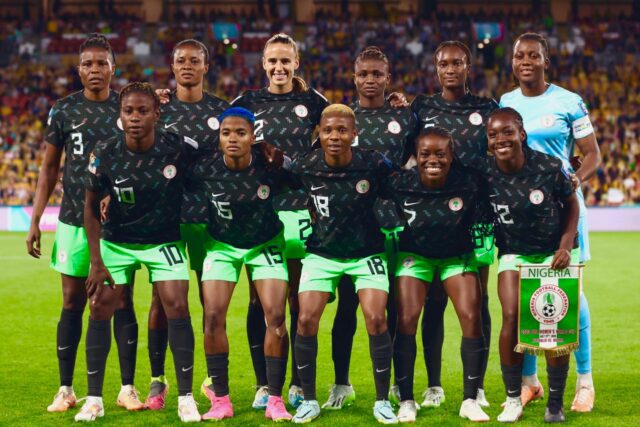In the aftermath of Nigeria’s heart-wrenching penalty shootout loss to England in the 2023 Women’s World Cup, Ifeoma Onumonu, a member of the Super Falcons squad, has shed light on the dire conditions that the team endured during their preparation for the tournament.
Read Also: Alhaji Ganiyu Majekodunmi Heads NFF’s Youth Football Committee
The 29-year-old NJ/NY Gotham FC attacker has revealed shocking details of substandard facilities and resource scarcity that nearly led to a boycott of the competition in protest.
The Super Falcons’ journey in the tournament came to an end after a nail-biting encounter against the Lionesses, where England’s Lauren James was sent off for a controversial foul.
The match ended in a goalless draw after extra time, but Nigeria’s hopes were dashed as they succumbed 4-2 in the penalty shootout.
Onumonu, whose insights have drawn attention to the concerning state of affairs within the Nigerian camp, expressed her frustration at the disparity in resources between her home nation and the more privileged teams.
Comparing the conditions to what she had witnessed in the English camp, she emphasized the glaring inadequacies in Nigeria’s training facilities and accommodations. The revelation that players were sometimes compelled to share beds due to resource constraints highlights the stark contrast to the more comfortable arrangements that other teams enjoy.
“In Nigeria we don’t have access to much,” Onumonu lamented, emphasizing the lack of proper training fields and subpar living conditions. She further disclosed that recovery amenities, such as gym facilities, were notably absent from their camp setup.
The candid statements from Onumonu have sparked a broader conversation about the gender inequalities and discrepancies in resources faced by women’s football teams, particularly those from developing nations.
As the Nigerian Football Federation faces mounting criticism for its perceived negligence towards the women’s team, calls for improved support, investment, and equal treatment within the sport have gained momentum.
The revelations bring to the forefront the pressing need for systemic changes to ensure that all athletes, regardless of their background or nationality, have access to adequate resources and facilities as they strive to compete on the global stage.









